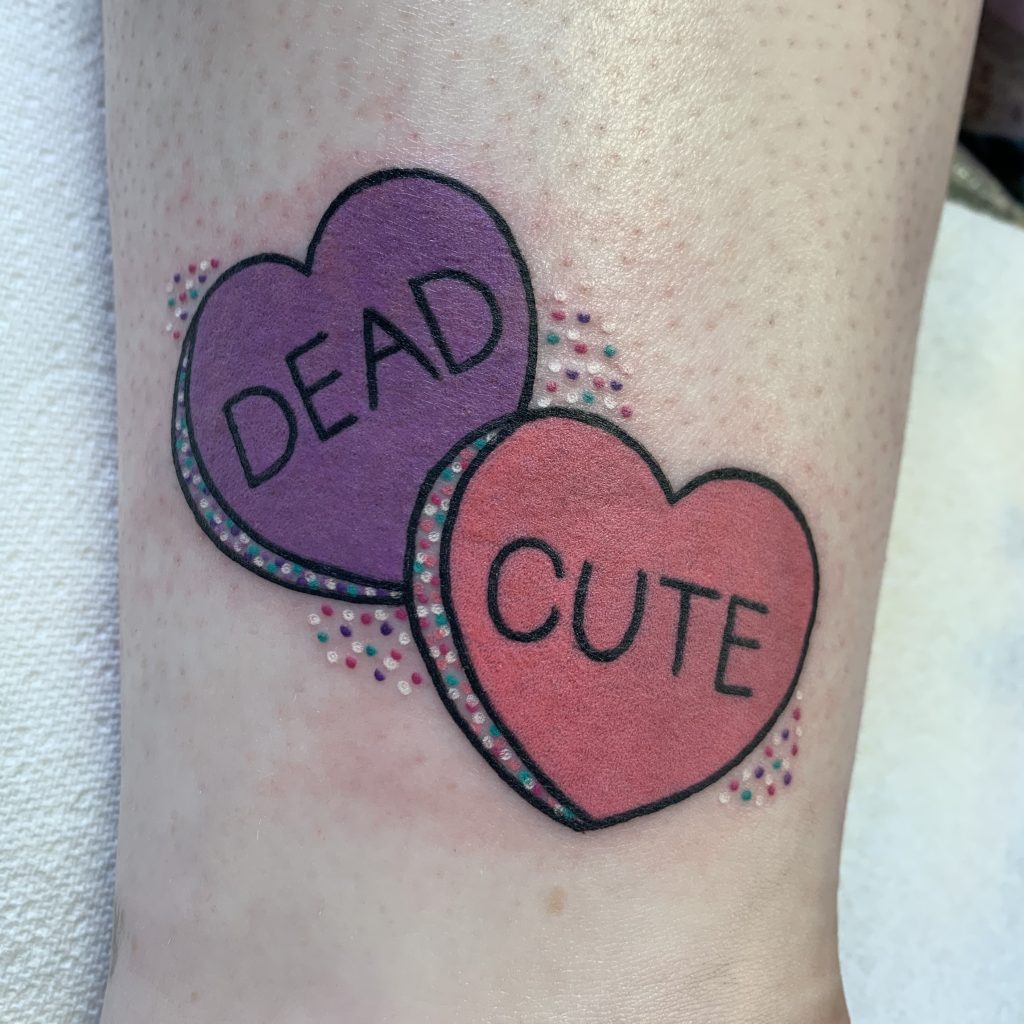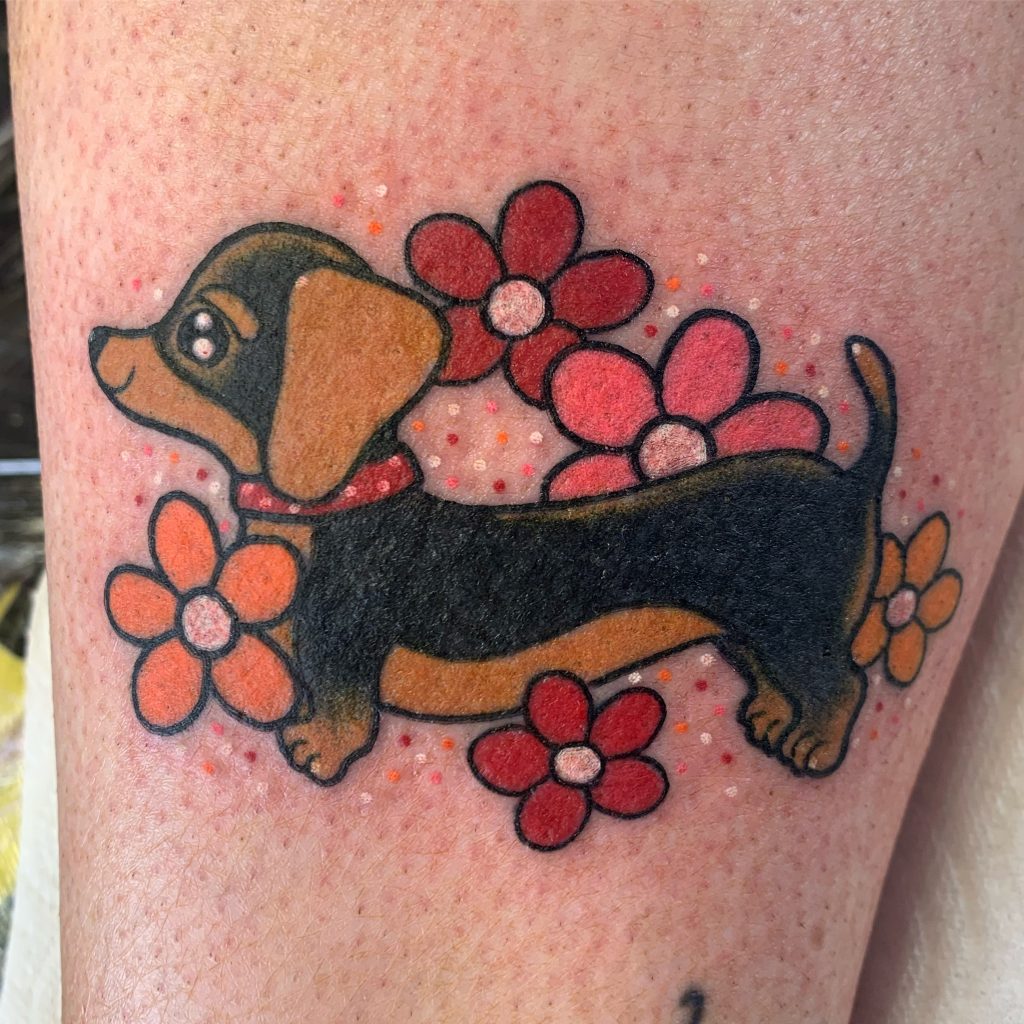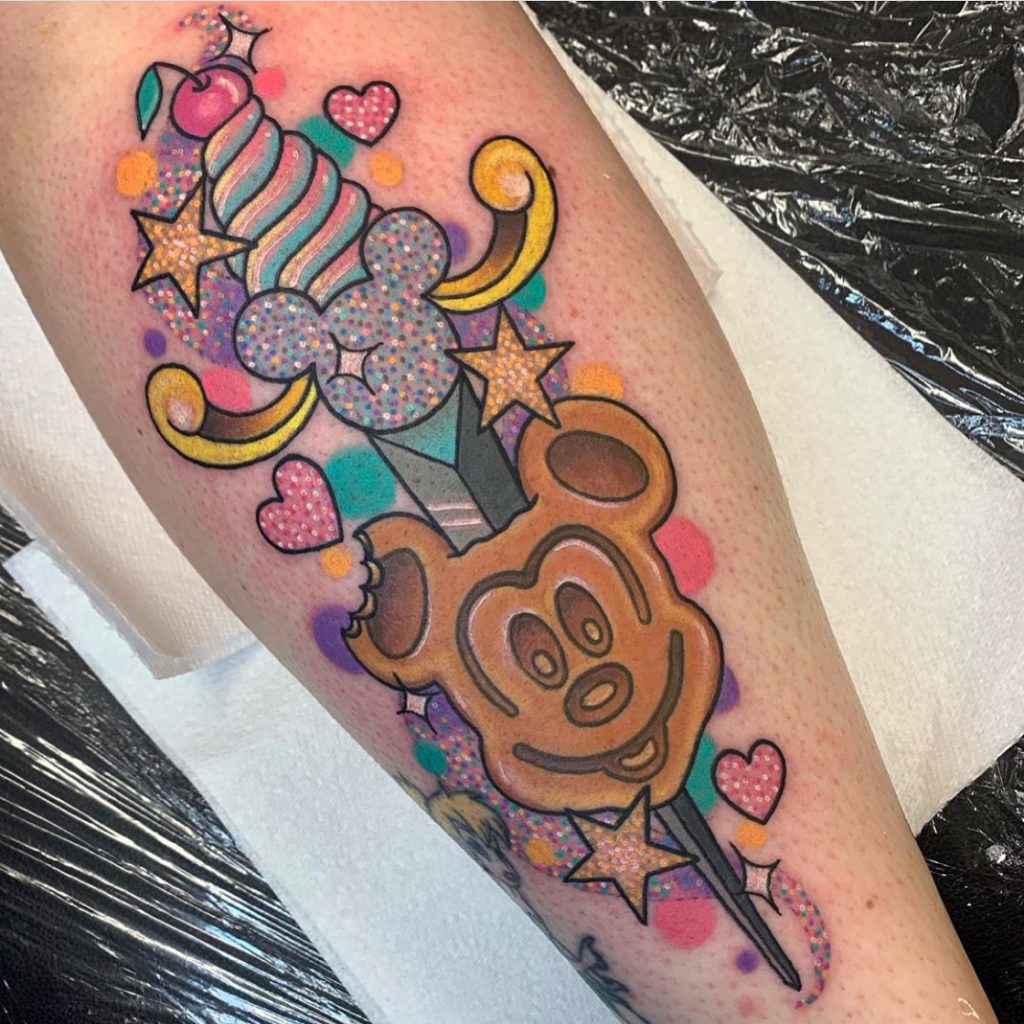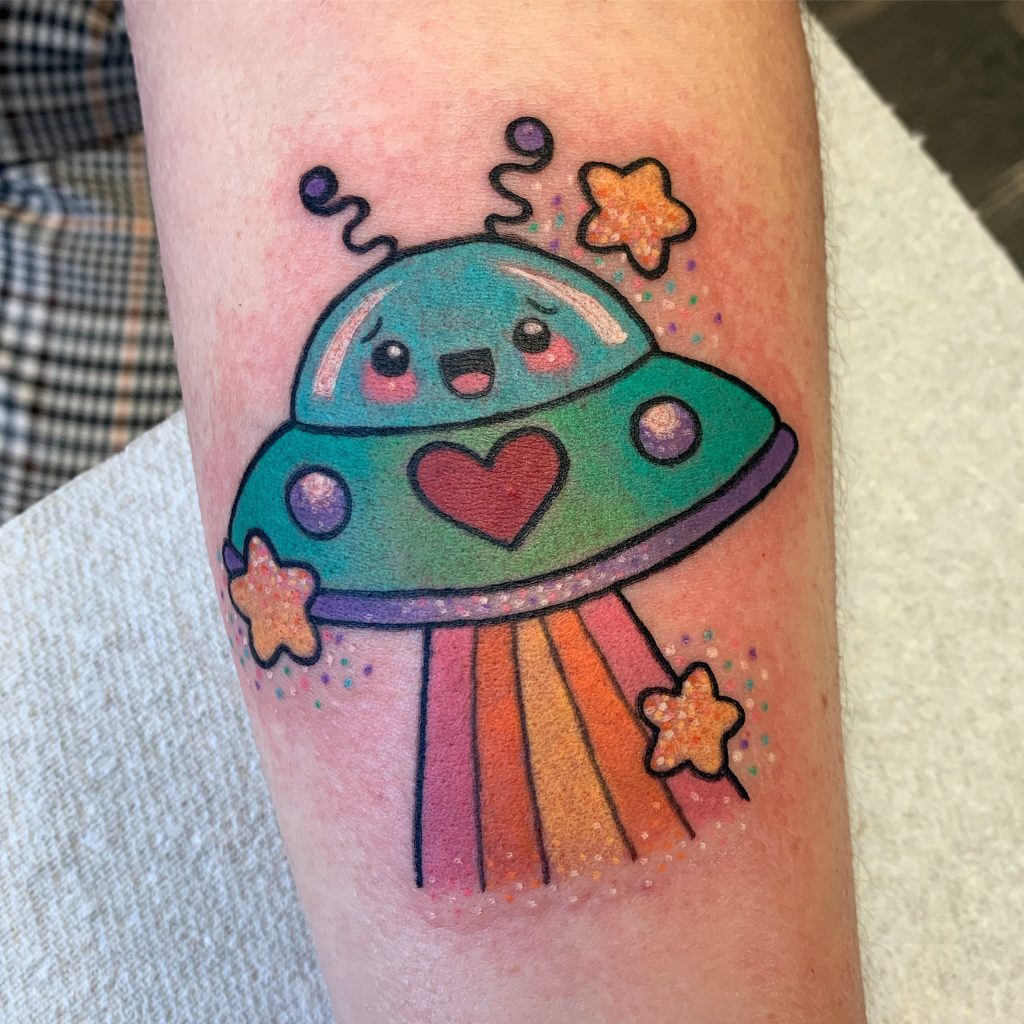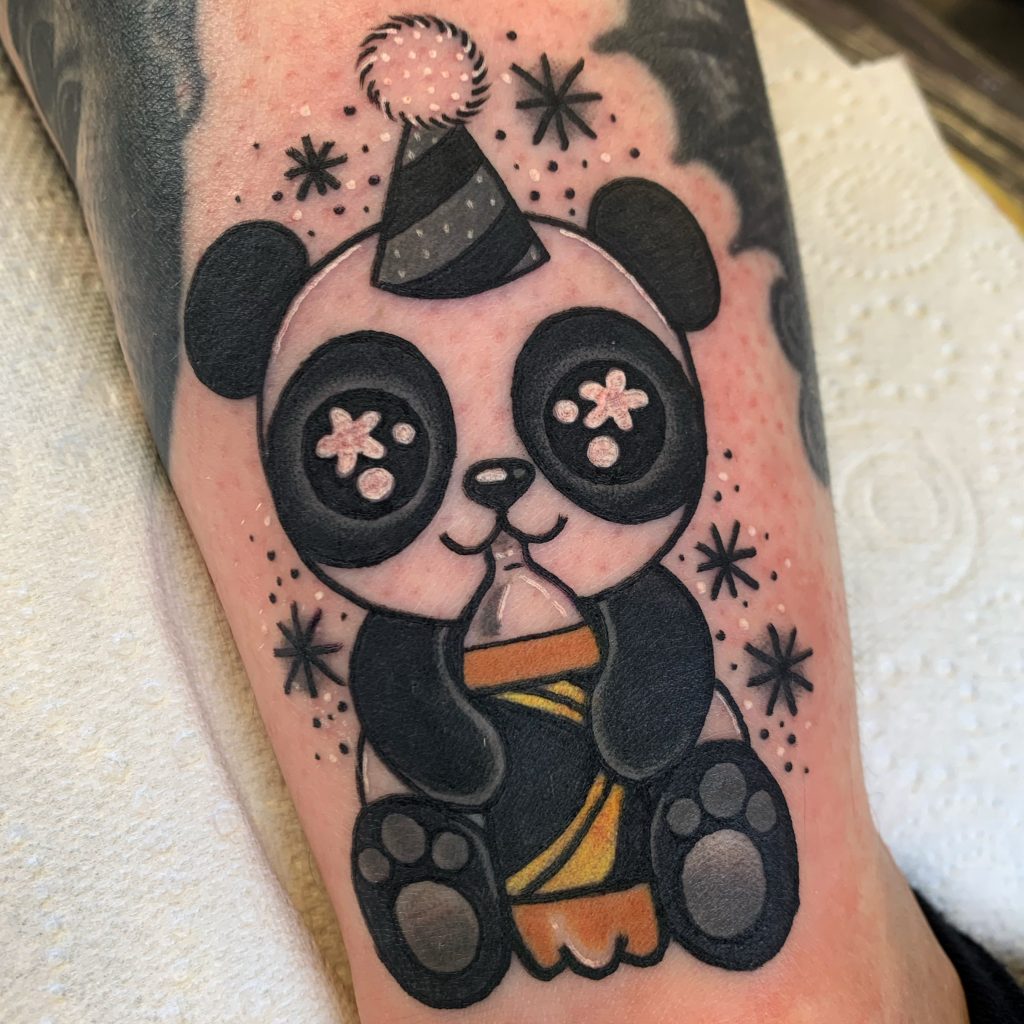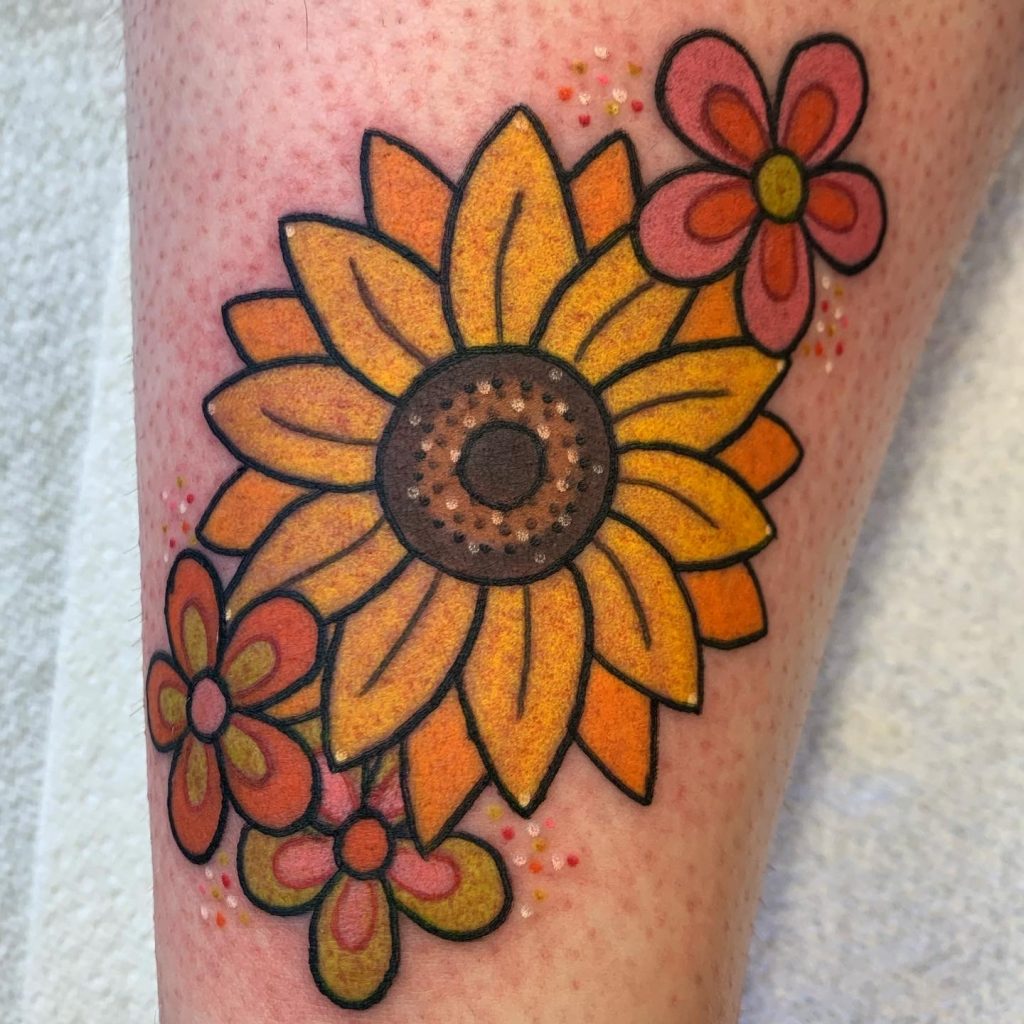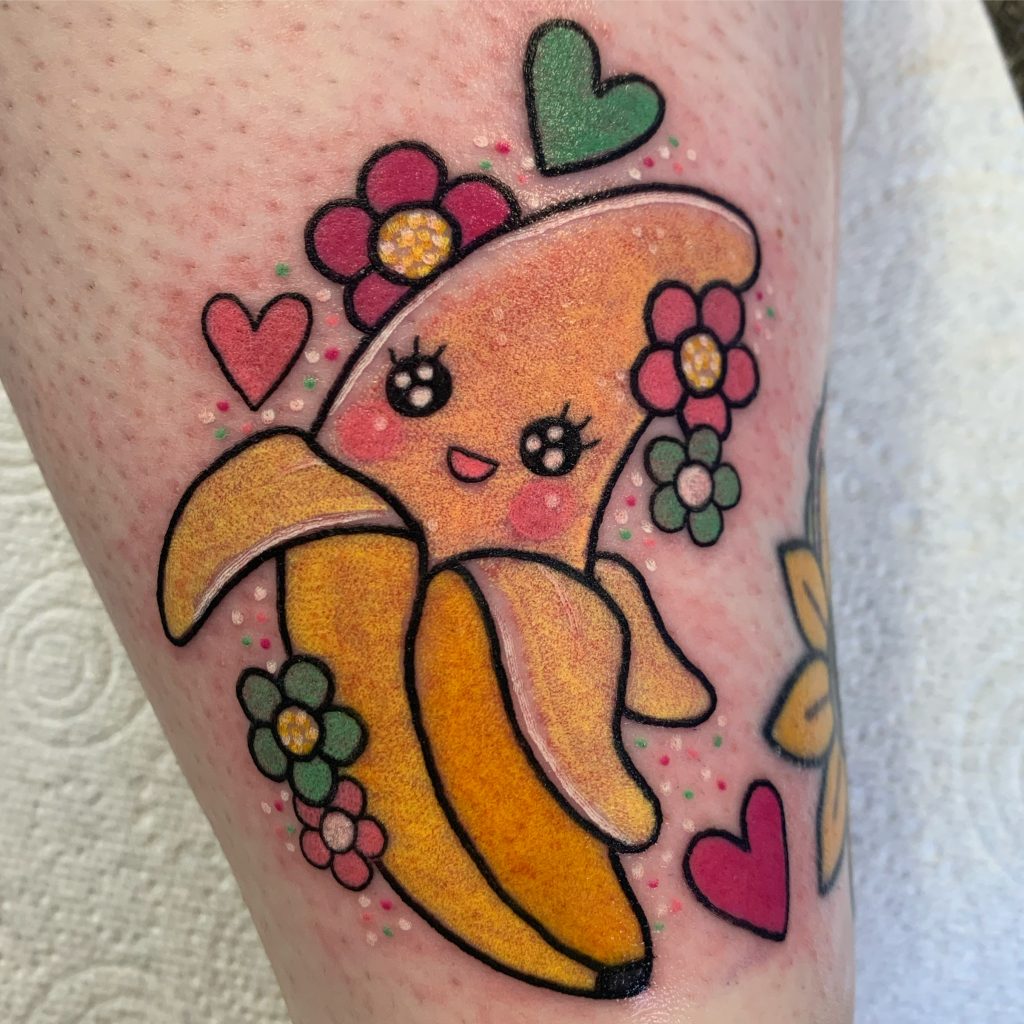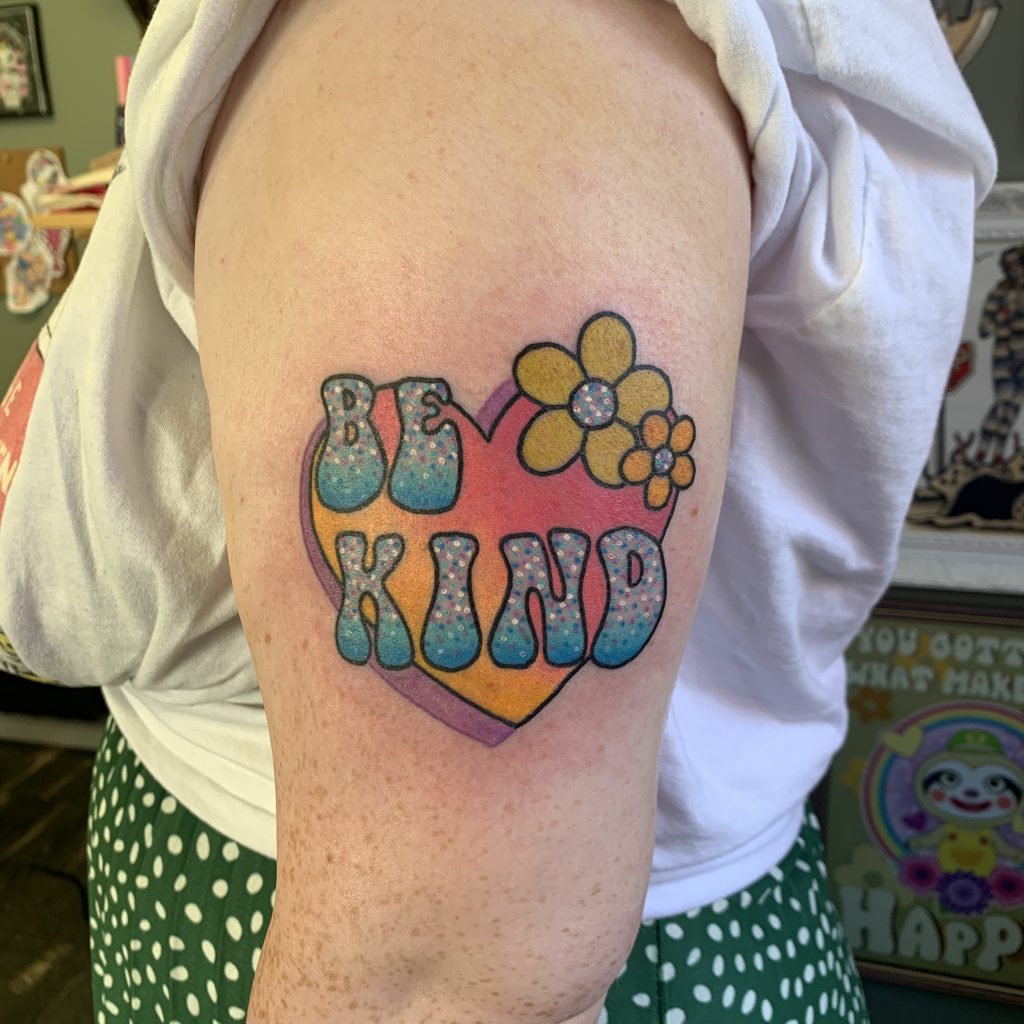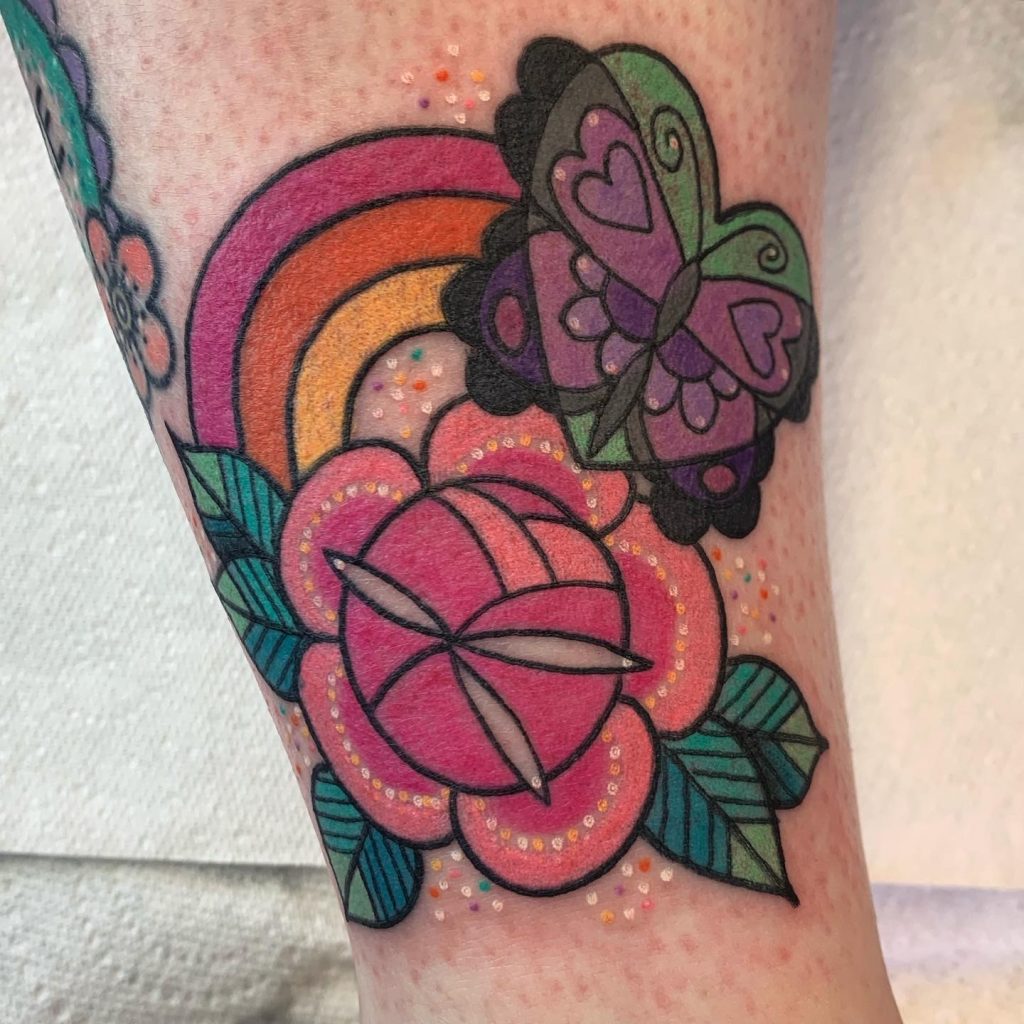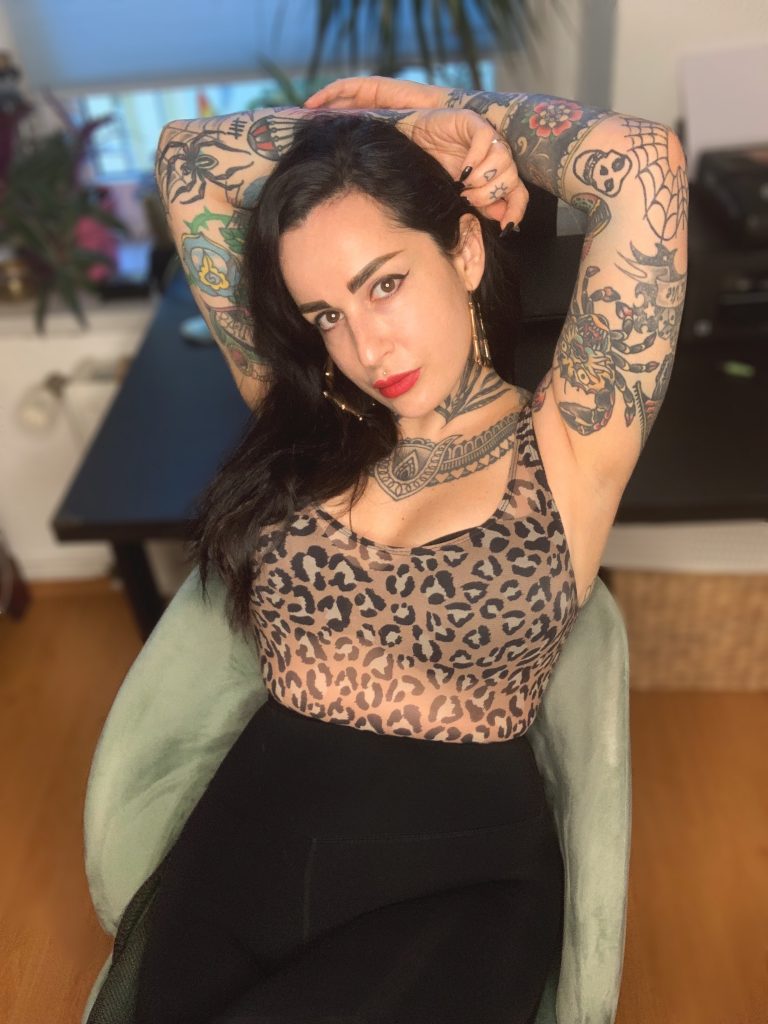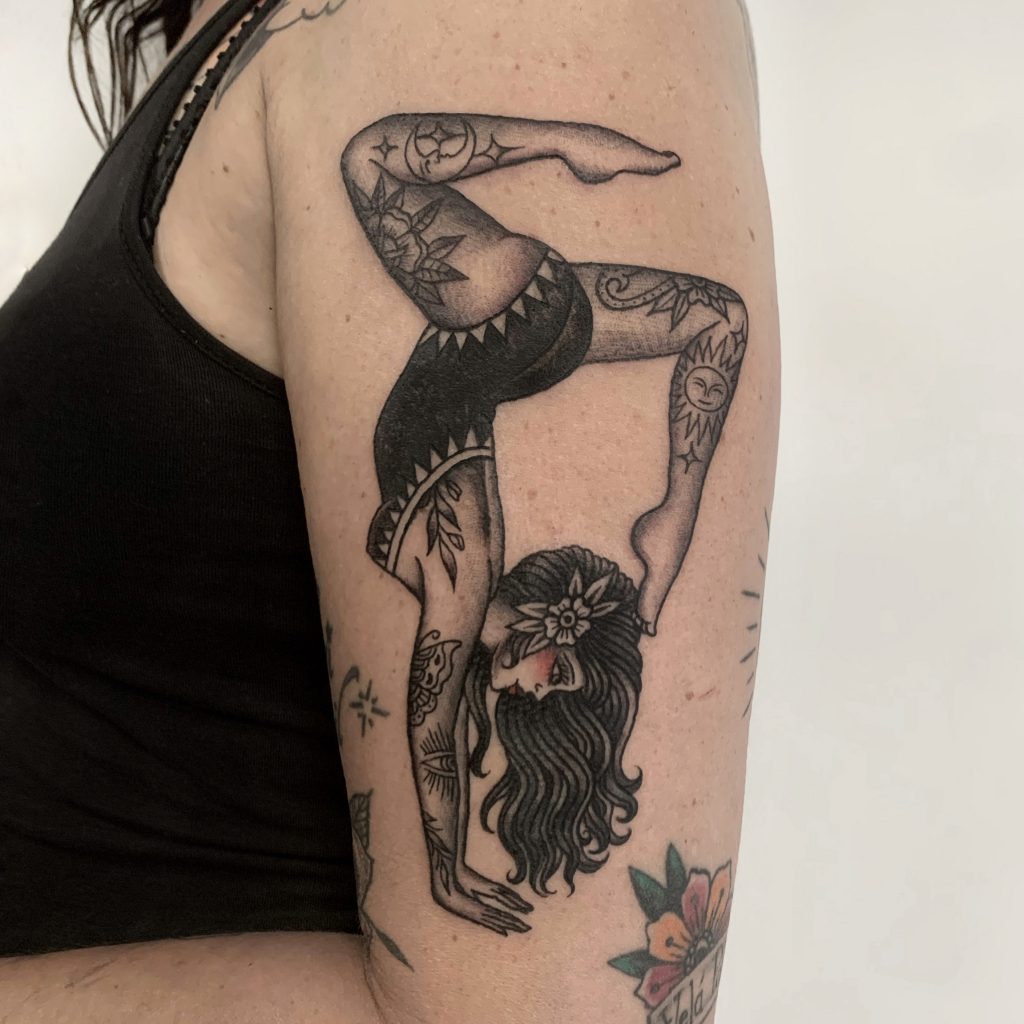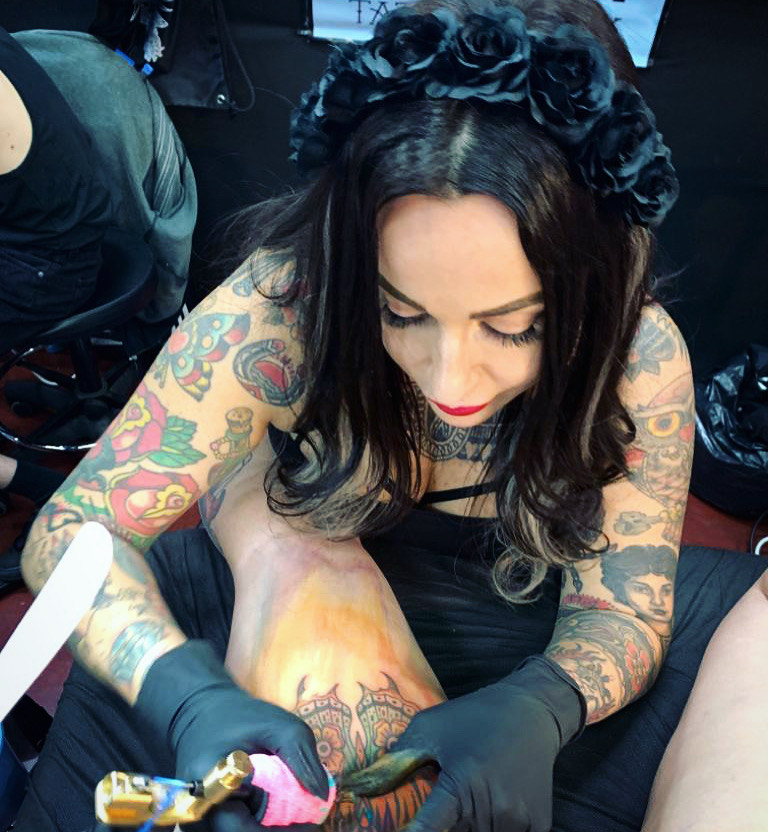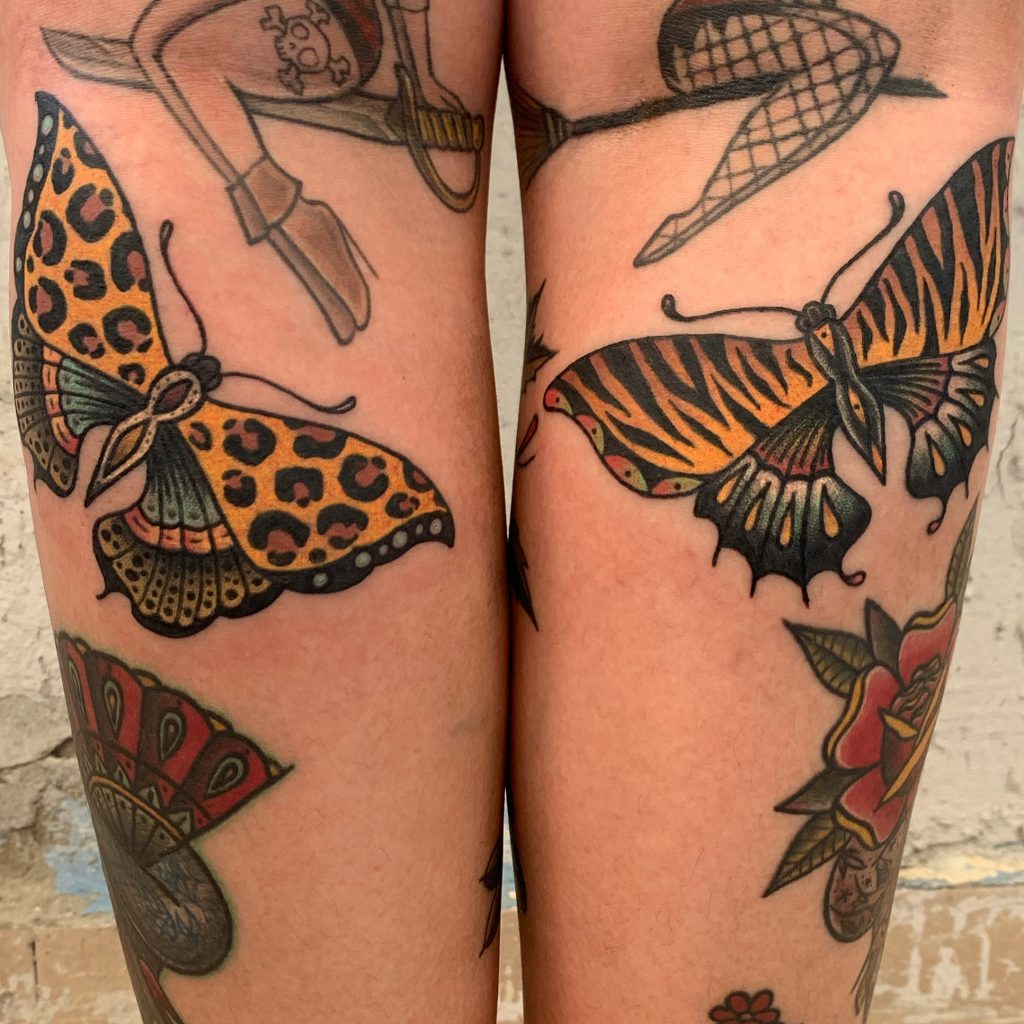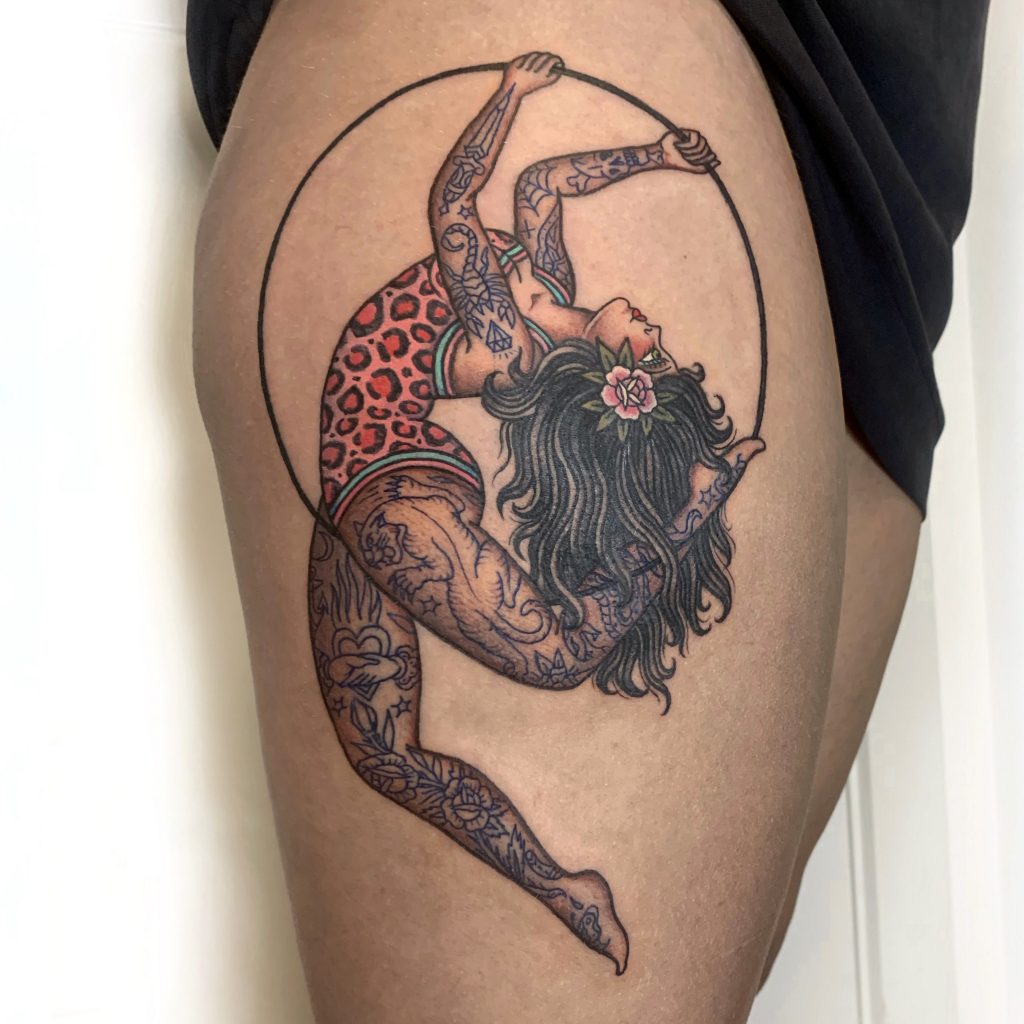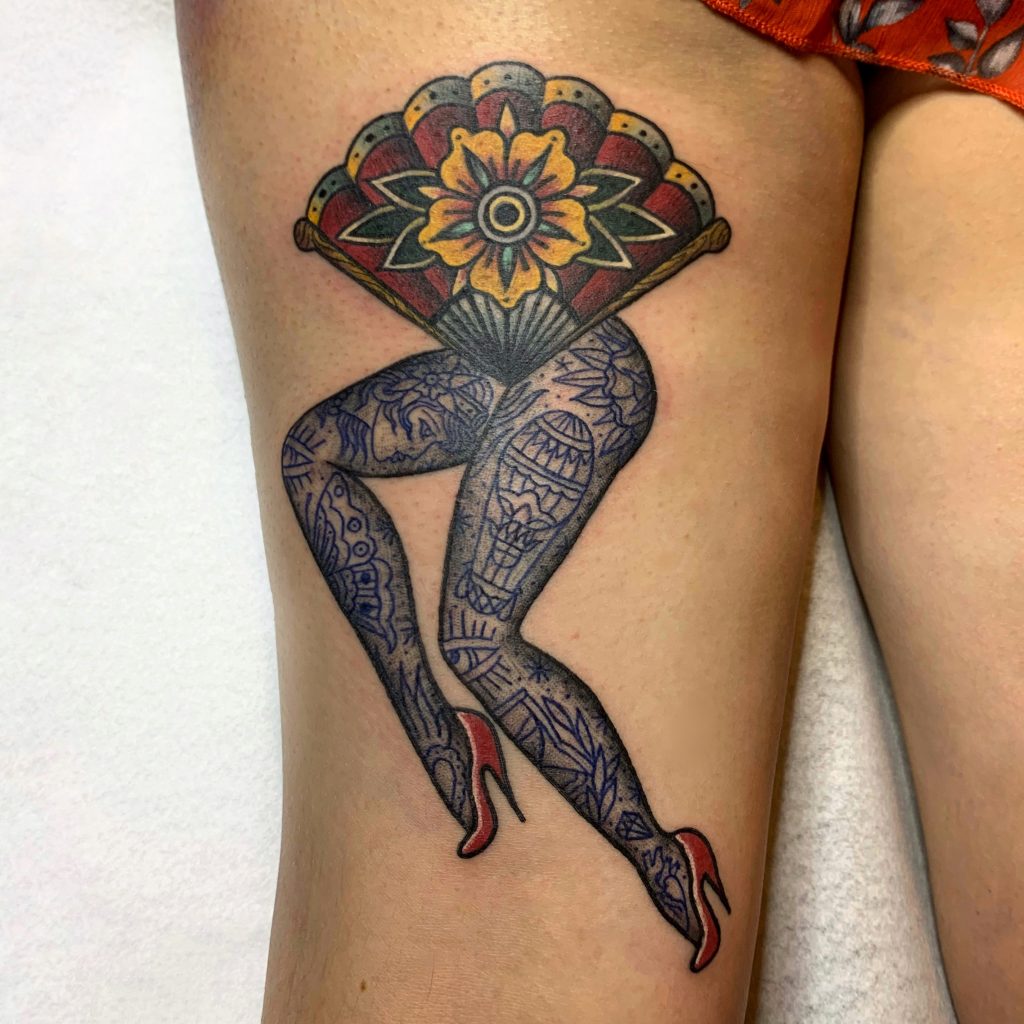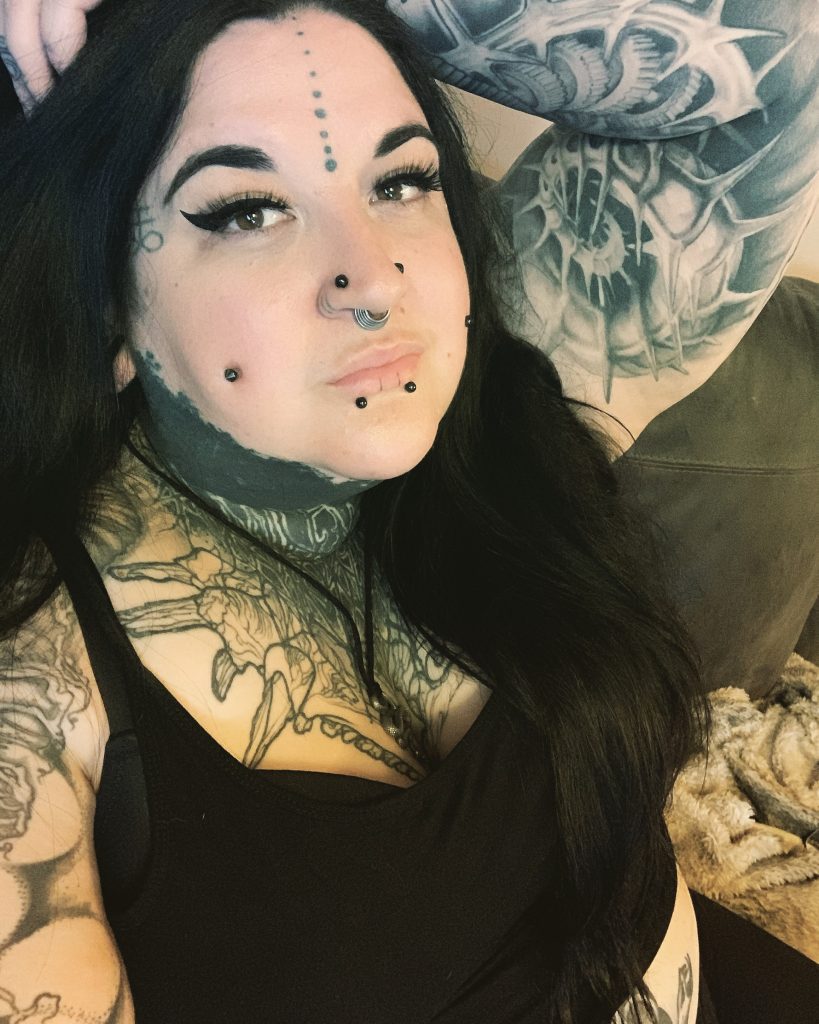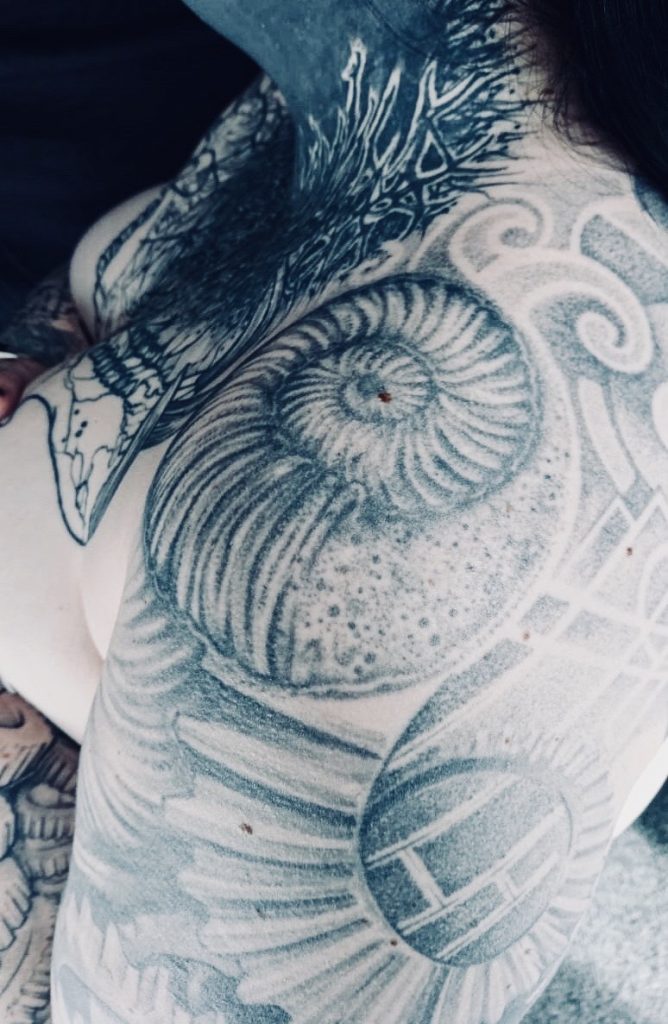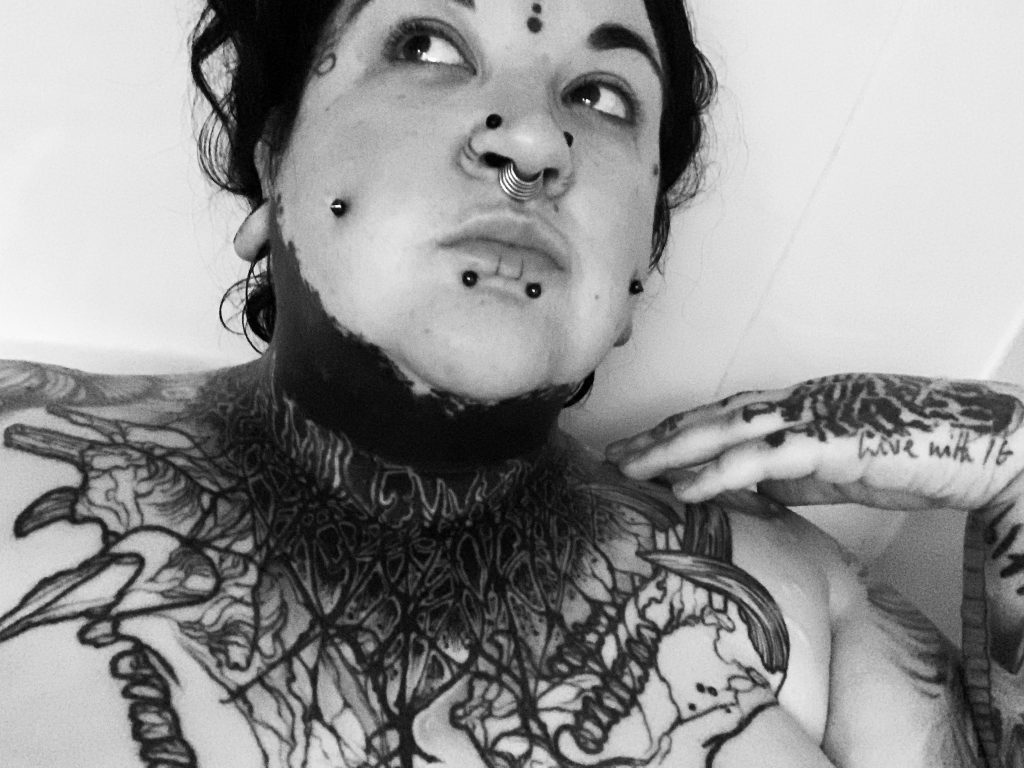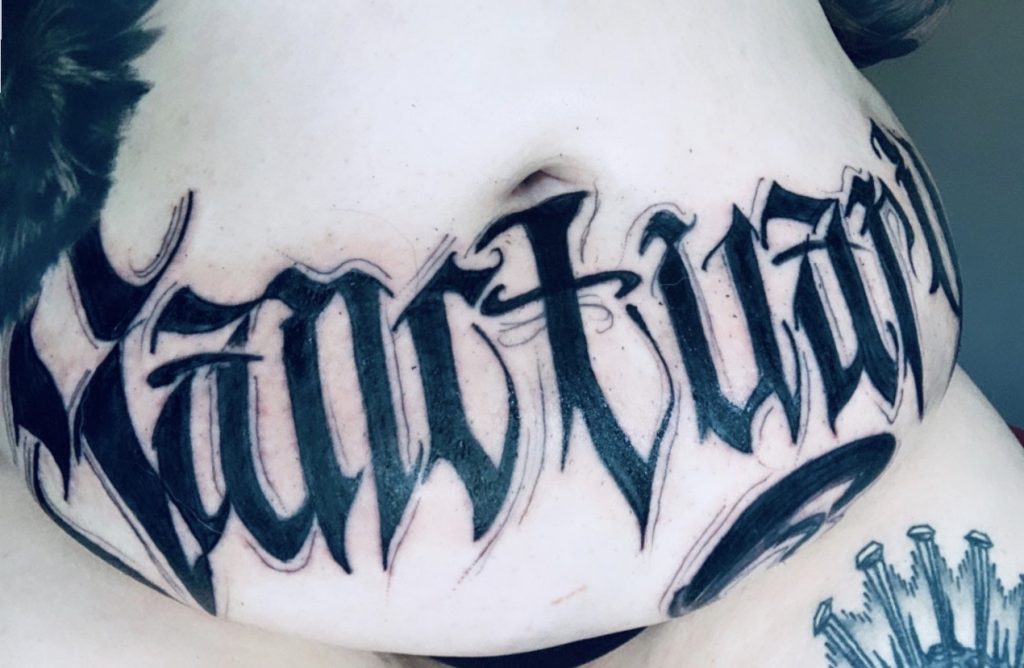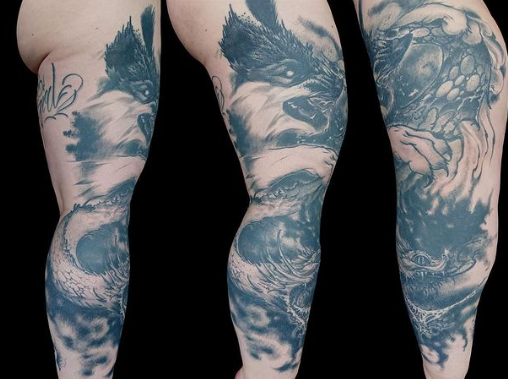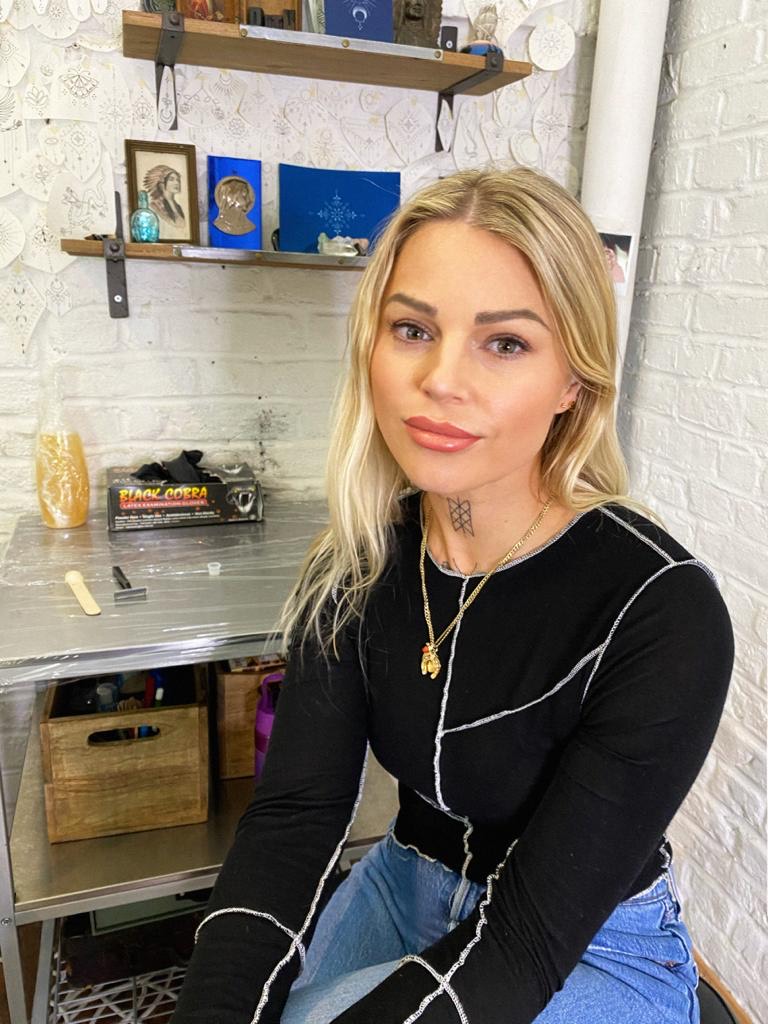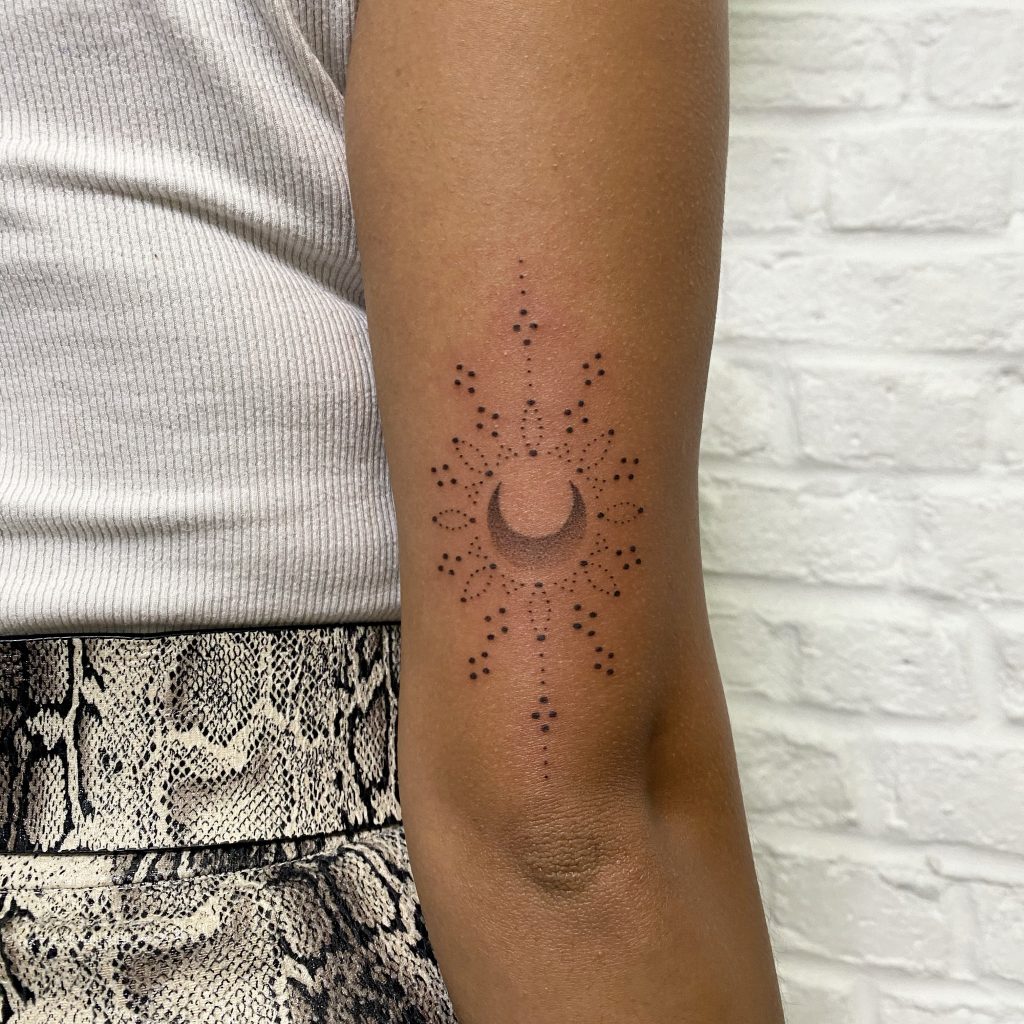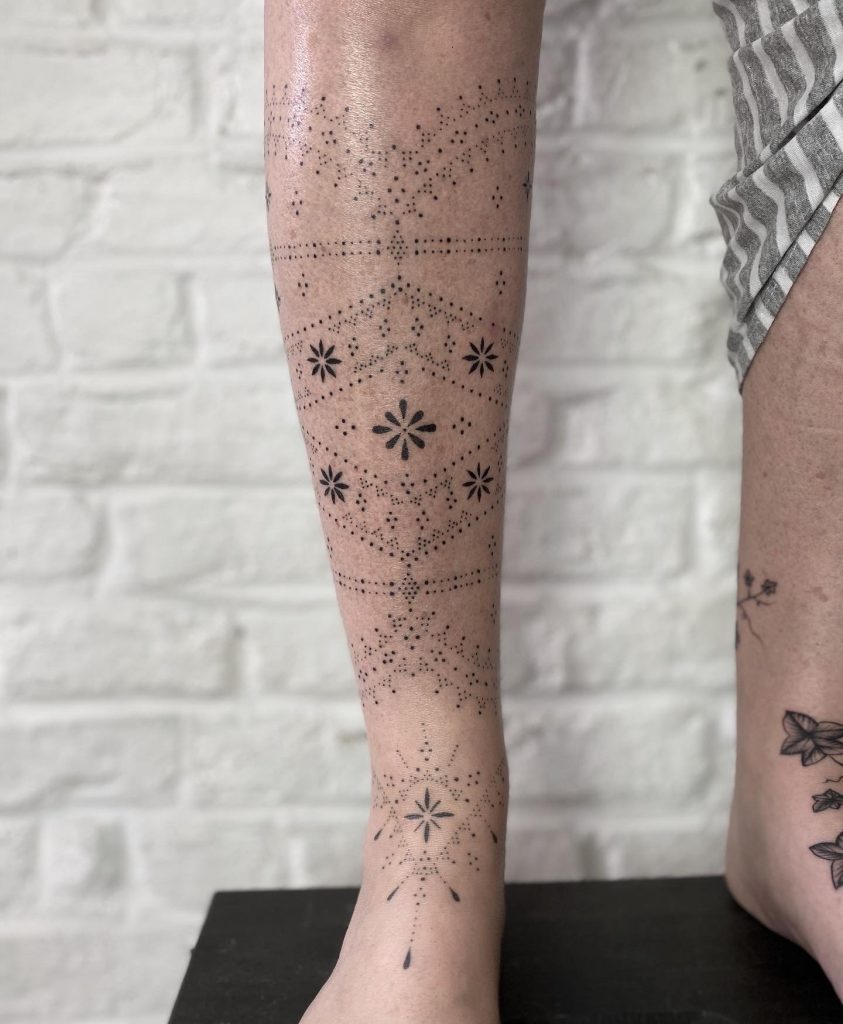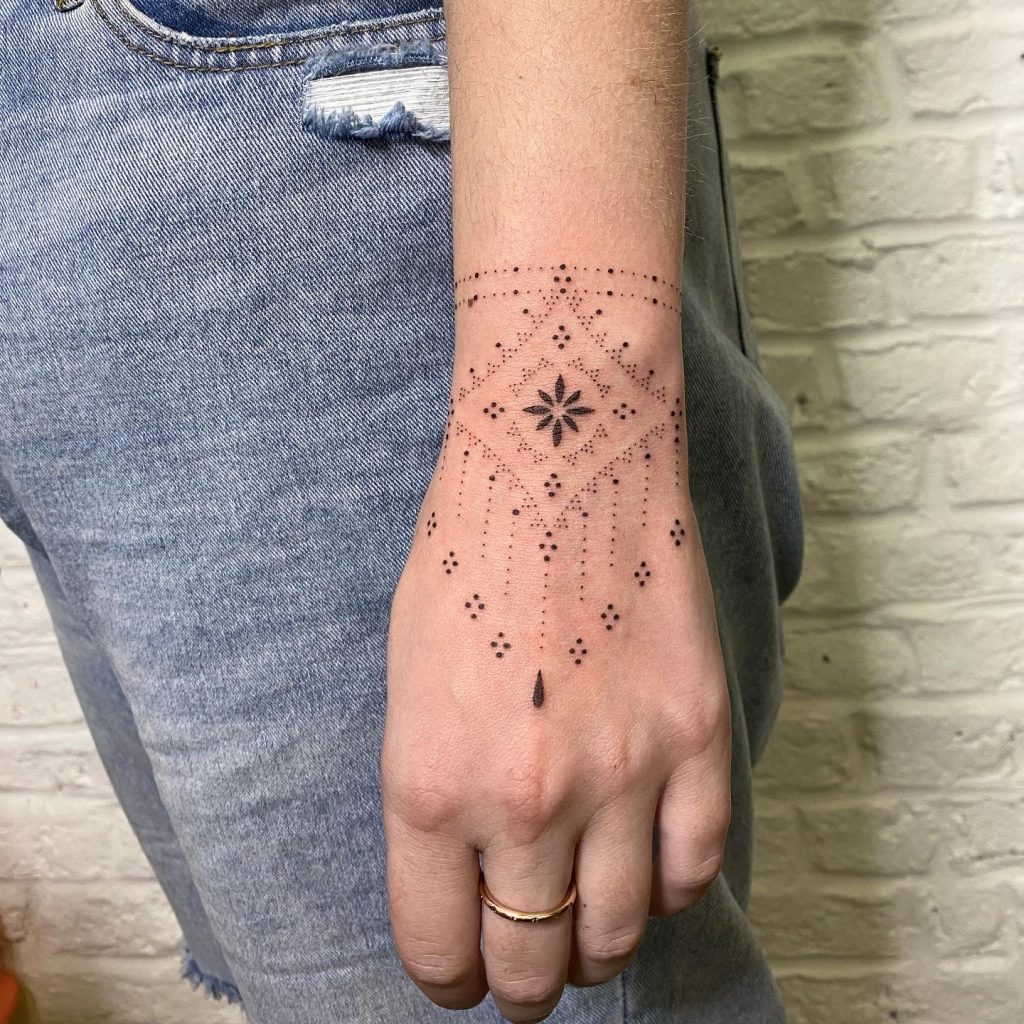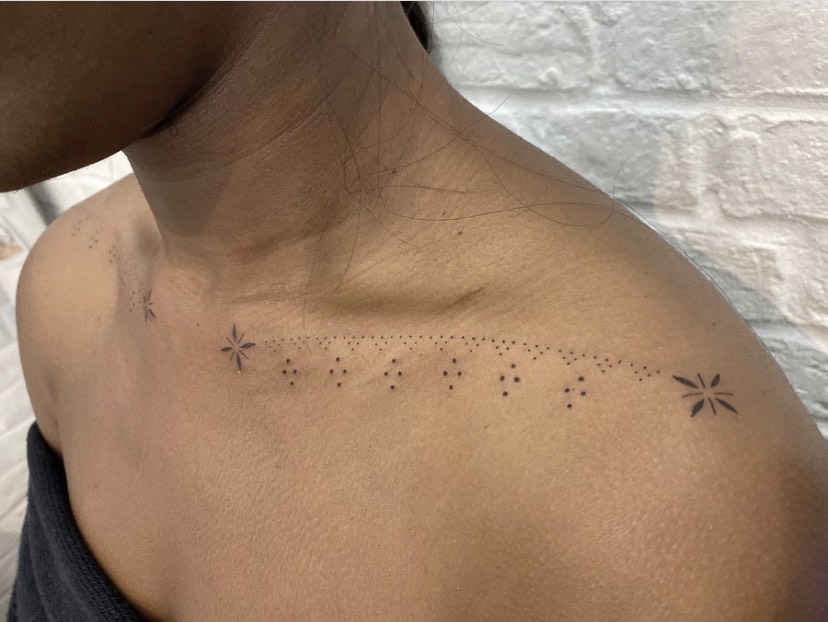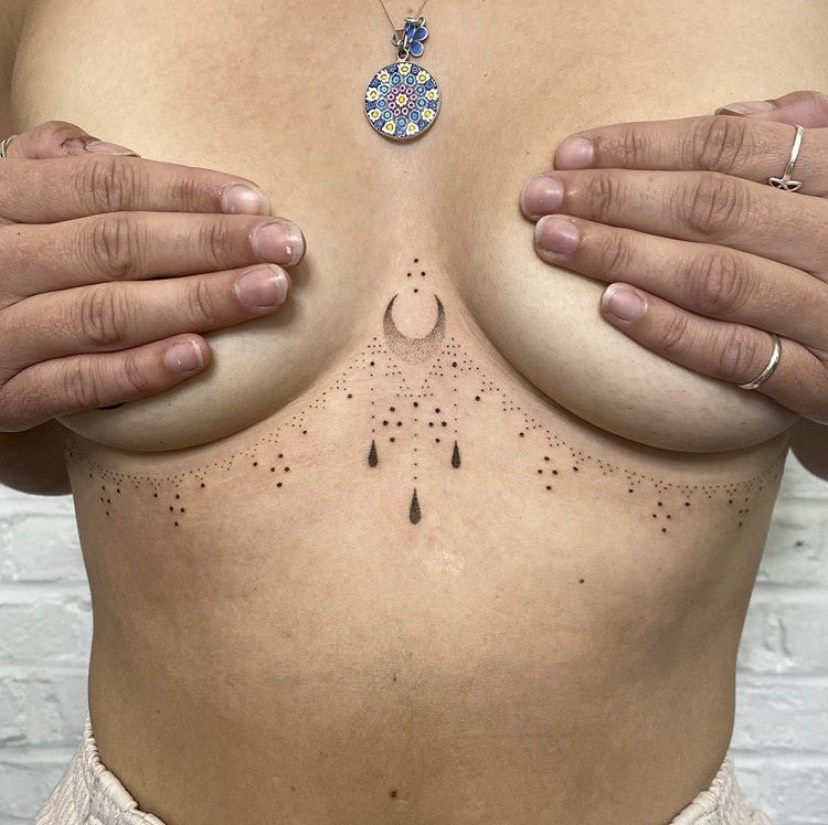Molly Cavell is an erotic feminist artist based in Leeds where she creates stunningly colourful and detailed textile art, ranging from sex themed rugs to plush vaginas and sex toys. We caught up with Molly to discuss her personal tattoo collection, her inspiration and what drew her to creating sex inspired art…
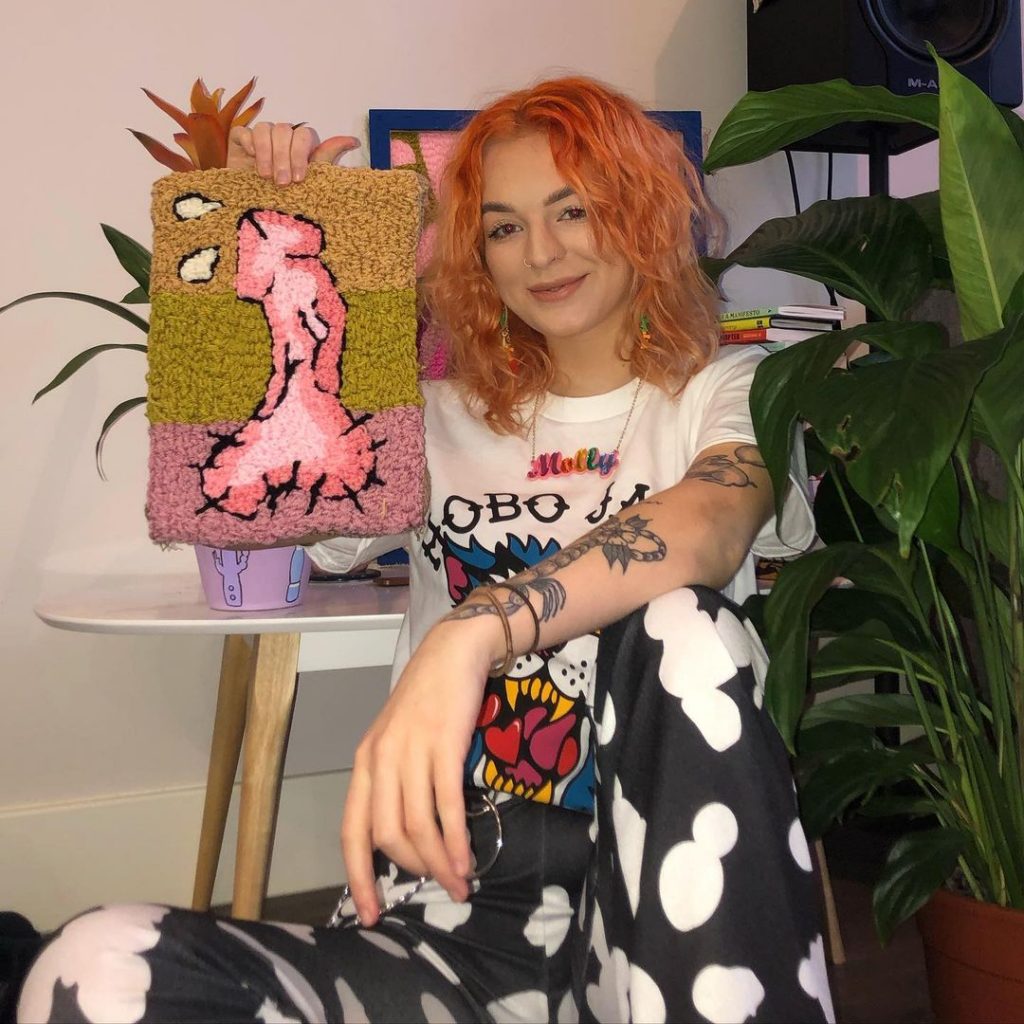
Tell us about your artistic journey, how did you first get into textiles and how did you come to create your business? My mum first taught me how to use a sewing machine whilst I was in high school and I absolutely adored it, but never stuck with it. It wasn’t until my foundation course and then university that I properly got into textiles as a medium. I just adore creating things with my hands and find sewing beyond therapeutic. Being such an impatient person, it’s taught me patience and allowed me to take that time out for myself and just sit and listen to music or be at one with myself and create art.
From sewing I then started to get into punch needling. Amy Hastings on Instagram was the first account I saw creating rugs and I became obsessed (her work is beyond beautiful). However, I still wanted to create art by hand as the process of hand work is really important to me, through this process I then discovered punch needling which is now my main way in which to create work.
As for my business, this came about accidentally to be honest, I first created my art account during my foundation course about three years ago. I made this account as a way to document my art and in no way thought I would ever make money from my art let alone grow a following. As I kept on posting my art the account slowly grew momentum and eventually, I got a message requesting a commission. This is mad to think but this only happened at the end of 2019 so just over a year ago and from then I have started selling my work. My dream goal is to become a freelance artist, so fingers crossed I can get this going in 2021.
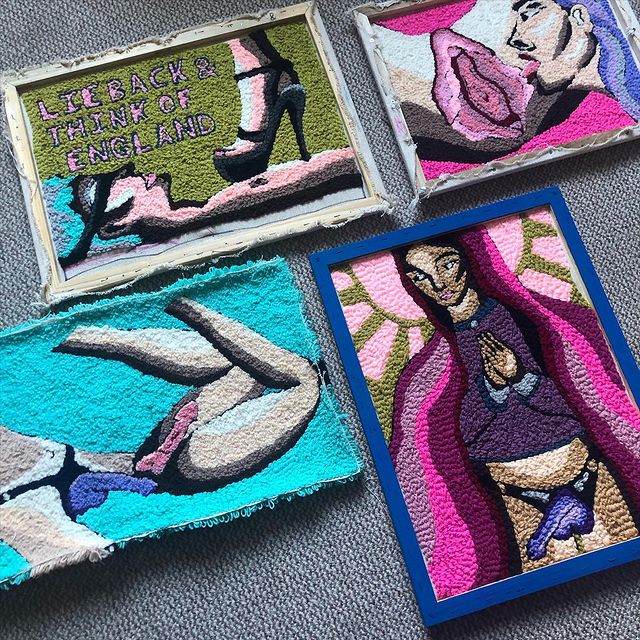
What made you want to create sex/masturbation/pleasure/genital diversity inspired work? Since high school I’ve been creating feminist art, however it wasn’t until my A-levels that I began looking at sex and masturbation. For me personally, I have always been a really open person in regards to talking about sex and masturbation. I just did not care, I’m a very sexual person so why should I hide that when it’s something I love? I soon realised though that with owning your sexuality comes a lot of backlash. I’ve had creepy men assume that just because I talk openly about these things it must mean I automatically want to have sex with them. I’ve had people make pre-assumptions about me, I’ve been called a ‘slag’ and all kinds of sexist names, all because I’m not embarrassed to say I love all things sex.
Creating my art is all about being true to myself and saying a huge fuck you to all the misogynists that expect a woman to act a certain way, cause news flash hun, women are just as, if not, more powerful than you. Why should women have to sit at home like I did when I was younger and think my labia are wrong, that I have to act this way, I should orgasm through penetration alone and I can’t express my sexuality because I’ll be shunned etc? It’s just disgusting that women feel that way and have for so long.
My art is all about empowering and educating women and it’s also been a personal self-love journey too. My work is really for all women (myself included) encouraging us to own that sexual power!
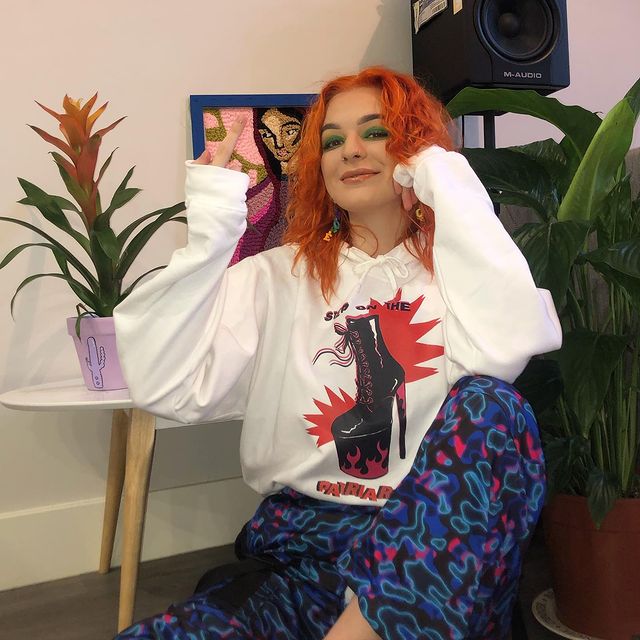
What else inspires you, your art and designs? Women have always been at the forefront of what inspires me, not only in regard to my artwork but in my personal life as well. Female artists that create work surrounding their sexuality have always drawn me in. The fact that when I was in school, boys could freely have sex and talk about it openly but a girl doing the same was shameful. To then come across these powerful women that were essentially saying ‘fuck you’ to a system that told them to behave a certain way was amazing to me. Womanhood and the coming together of all women, whether they’re cis, trans, white, woc, disabled, working class etc. is what really inspires me and my work.
The power sexually rebellious women exude is something I really try to bring into my own work as I think it’s so important for other females to know they can exert that same power.
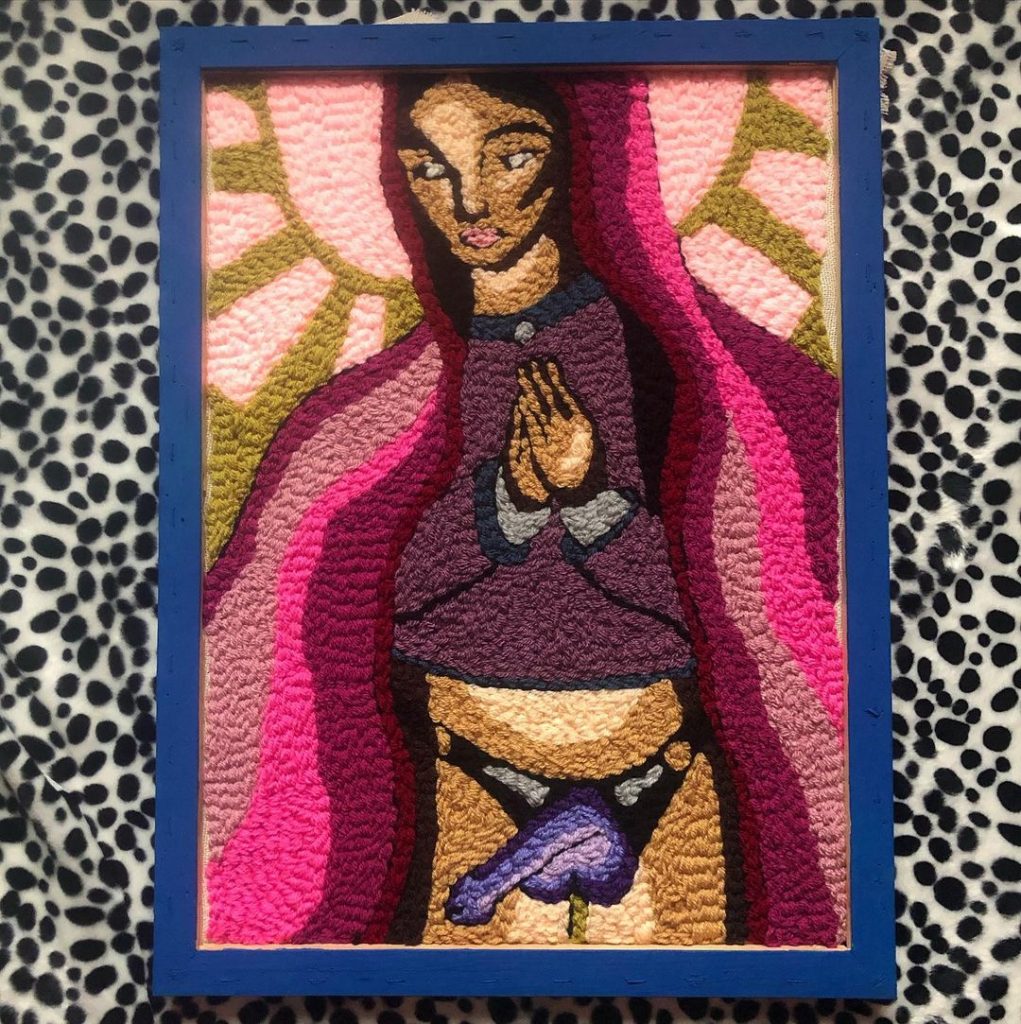
How important is feminism within your life? Feminism to me is everything and is beyond important to me in everyday life. I have seen so many women from my mum to my closet friends experience struggles, backlash, and abuse at the hands of patriarchy and there is nothing more important than standing up against it. I speak from the position of a very privileged person, I am a cis white femme woman and although I am working class, I am still very privileged compared to other women, so I feel its so important for me to knowledge that and support and uplift the voices of those who do not have this privilege.
Feminism is extremely important to every aspect of my life especially my art.
Feminism is all about equality and not just between women and men, it’s about trans women and women of colour having equal opportunities and rights as white cis women. It’s about non-binary folk and all those on the gender and sexuality spectrum having equality.

We love that your art and designs are so strongly empowering, do you intend to help educate your followers on female sexual liberation? I think my work started as more of a reassurance for myself more than anything. I used to be a very shy and quiet child and as I grew up and discovered that I was a very sexual person. I started creating art to express that and kind of input the message that ‘yeah you are completely normal and it’s okay to express yourself this way’.
My art has given me so much more confidence. When I started posting on my Instagram account and explaining my own personal experiences about things such as labia shaming and masturbation and the ignorance. I experienced more and more women came forward and began messaging me with similar experiences and then it’s just become this creative outlet for me to empower and validate myself and also educate and (hopefully) liberate other women. I absolutely adore this aspect of my work and it still blows my mind that people actually enjoy and connect with the art I make.
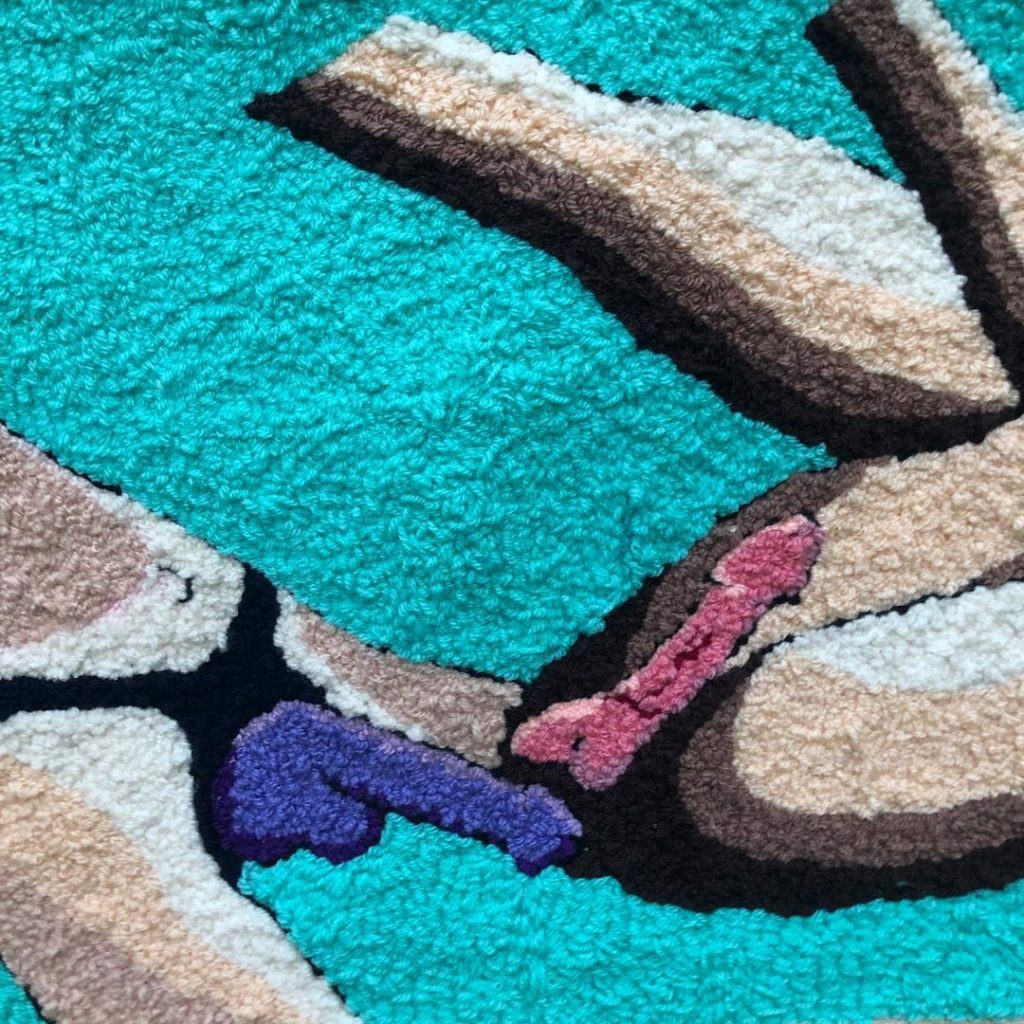
Can you tell us about your personal tattoo collection, do your tattoos inspire your work at all? I only have 15 tattoos at the moment, but I plan on covering my whole body in them. I got my first tattoo at 18 and god its such a bad tattoo but we move! Most of my tattoos are done by completely different artists, I have all sorts of different styles on me, however my most recent piece is more traditional style, and this is something I want to stick with going forward. If I’m completely honest my current tattoos don’t have much connection to my art and I don’t take my tattoos too seriously. I feel like some people want really meaningful tattoos (which is so lovely) but for me it’s not about that it’s more about the art side of them. Most of them are animals – I got my flying pig because pigs are my favourite animal, the two headed lady because I saw her on a flash sheet and fell in love with her and
I am starting to get more meaningful tattoos though, the most recent ones I got was the words ‘feminist killjoy’ above my knee because that is exactly what I am! I have a Venus symbol on my arm with plans to get ‘no terfs no Tories’ above my opposite knee. I want my body to reflect my political beliefs as I’m a VERY political person but also displaying my genuine love for art at the same time. I’m really not precious about the tattoos I get, most of the time if I see a design or a flash that I love as an artwork then I’ll get it tattooed.
Tattoos for me are self-expression and make me feel literally about 100 times more confident in my skin and I cannot wait to be covered head to toe in them.
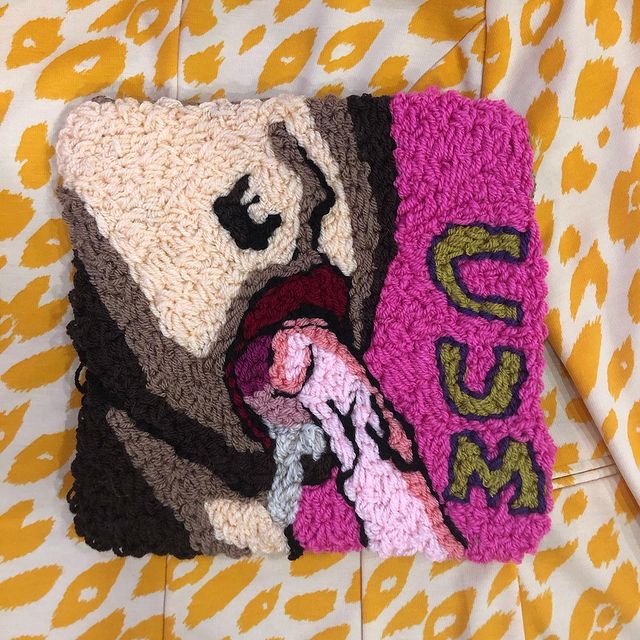
Do you have a particular design you want to create more of? At the moment I am enjoying creating my sex scene work. I started making work about sex toys in order to normalise them and their use and slowly that developed into me actually showing scenes of sexual nature displaying masturbation, pegging scenes, oral sex etc. I’m really loving how it’s going. I don’t think too far into the future about where my work is going. I just think the best things develop and grow naturally so I’ll continue creating this work until I feel another direction or concept would be exciting to explore! So, expect a lot more sex scene rugs!
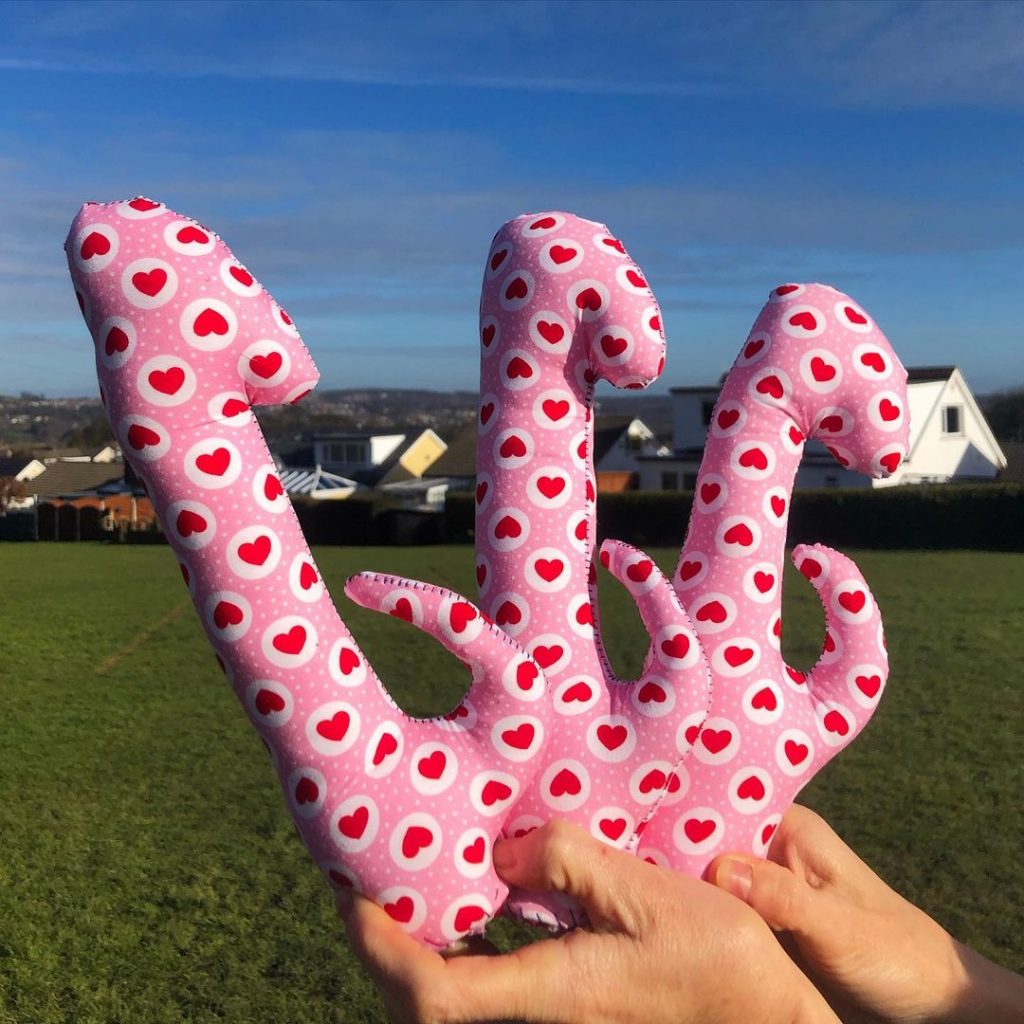
Do you have any upcoming plans or collaborations you want to share with us? My plans for the rest of the year are to hopefully get my website up and running and I’m going to be bringing back my vulva cushion commissions very soon which I am so excited about! I graduate from university this year and I’m so excited to be able to put all my focus on building up my business and hopefully going freelance! I have a few collaborations coming up with some amazing artists that I can’t wait to share, mainly creating pieces to raise money for various LGBTQ+ charities and individuals, so keep an eye out on my Instagram for the details of these bitzz!
Make sure to follow Molly on Instagram and check out her shop.
Words: Lucy Edwards, 21-year-old tattooed freelance writer, cat mum and trying-new-things enthusiast. You’ll most likely find Lucy posting about mental health awareness and self-acceptance on her Instagram.
